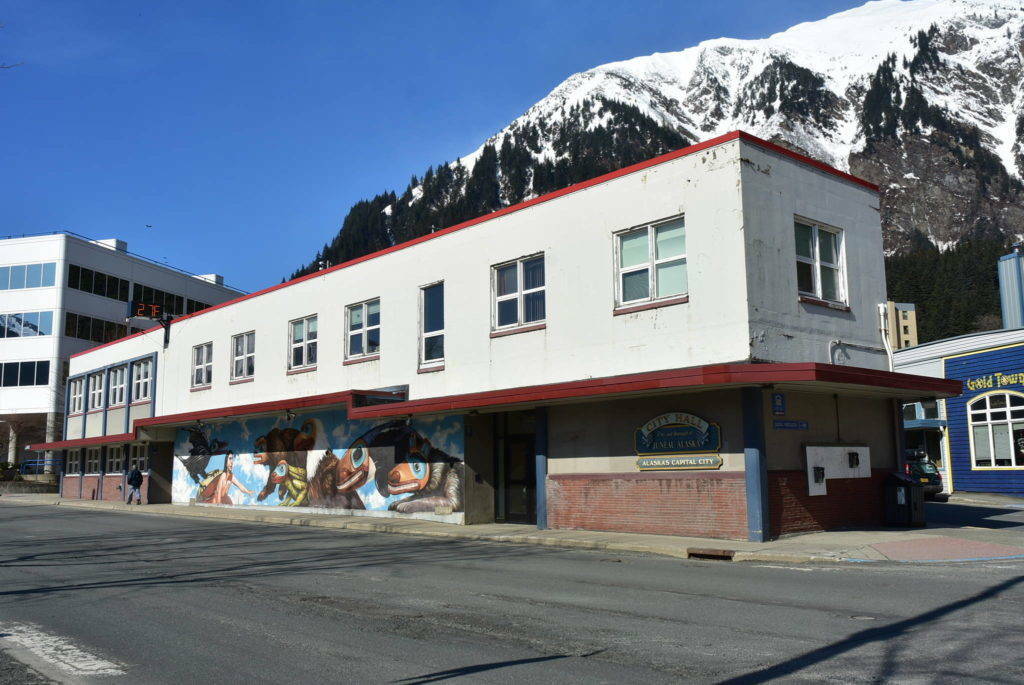By Win Gruening
During the City and Borough of Juneau Finance Committee meeting on February 3, Assembly members agreed to re-consider removing the city’s sales tax on food, a subject that has been discussed numerous times over the years.
While the idea may enjoy popular support, including the endorsement of the Greater Juneau Chamber of Commerce, the devil is in the details. According to Jeff Rogers, CBJ finance director, the repeal of sales tax on food would blow a hole in the city budget amounting to $6 million annually.
How to plug that hole, up to now, created enough controversy and dissension to stymie three previous special committees or task forces formed to advance the idea.
One of the Assembly’s 2022 goals is “Continue to evaluate sales tax structure including equity and evaluate removing sales tax on food.” Some Assembly members voiced the need to address inflation and the rising cost of living in the community.
Several comprehensive memos provided at the Finance Committee meeting capture the complexity and difficulty of the task at hand. Defining which food items would qualify as exempt, then crafting a proposed ordinance by August in time for a public vote in October 2022, are the first steps.
However, that is only half the battle, and the easiest half at that.
Without a long-term strategy for replacing the missing revenue, it’s doubtful that a majority of Juneau voters would be willing to sign on. Nor would they be willing to accept general tax increases without a rigorous review of CBJ expenditures anticipated in the FY2023 budget.
Ideas for revenue replacement considered in 2020 included raising the overall sales tax rate to 6% (either seasonally or year-round) and repealing selected sales tax exemptions for non-profits and federally recognized Indian tribes. (A proposal to also tax on-board cruise ship sales was recently implemented.)
In past columns, I’ve laid out the rationale for requiring non-profits and tribal organizations to collect sales taxes on their retail sales. Remember, in this case, it’s the customer who pays the tax. Consider the following examples:
• When Central Council of Tlingit and Haida sells a cup of coffee at Sacred Grounds café or fireworks for July Fourth celebrations, they don’t collect sales tax;
• A cruise ship passenger purchasing items at the Discovery Southeast gift shop at Mendenhall Glacier doesn’t pay sales tax on similar items sold (and taxed) in Juneau stores;
• When a visitor pays $5,000 for a carving at the Sealaska Heritage gallery, no sales tax is charged.
This exemption is rarely seen anywhere in the country and is hard to justify. Cities and states have carved out exceptions for sales by organizations like the Salvation Army, Girl Scouts, nd community sports leagues.
Kudos to the Assembly for their willingness to address that specific issue.
Inexplicably, however, Assembly members opted not to pursue repeal of exemptions on sales to nonprofits — only sales by nonprofits. However, continuing to allow nonprofits to avoid paying sales taxes on their own purchases forecloses another significant option to help close the revenue gap.
Many nonprofits already enjoy substantial benefits through income tax exemptions, avoiding local real estate taxes on qualified exempt property, and eligibility for generous government grants.
The easiest and perhaps the most tempting solution would be to raise the year-round sales tax rate to 6% — thereby totally offsetting the revenue loss. But would it be fair? This would shift the primary burden of the change to residents and visitors who already pay the most in sales taxes.
Arguably, the brunt of impacts from the collapse of our economy has landed on property owners, storekeepers, and employees of small businesses in Juneau — businesses that don’t qualify for special low-income programs and are struggling with higher property taxes.
If the Juneau Assembly is serious about gaining support for a repeal of sales tax on food, then all options should be on the table that result in a solution involving all the various ideas being considered. Only this way, will the entire community share the benefits as well as some of the cost.
By spreading the impacts somewhat equally, the Assembly will avoid the pitfalls that have forestalled action in the past.
• After retiring as the senior vice president in charge of business banking for Key Bank in Alaska, Win Gruening became a regular Opinion Page columnist for the Juneau Empire. He was born and raised in Juneau and graduated from the U.S. Air Force Academy in 1970. He is involved in various local and statewide organizations. Columns, My Turns and Letters to the Editor represent the view of the author, not the view of the Juneau Empire. Have something to say? Here’s how to submit a My Turn or letter.

